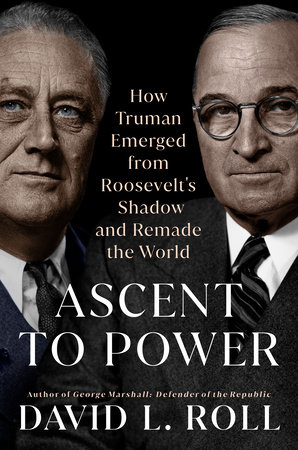We Are Losing Our Words
May 30, 2024

“Maybe use a more common word?”
My friend’s query is gentle. I asked for his take on an essay, and he marked a few words that might seem obscure, archaic, high-falutin’. A decade ago, I would have complied instantly, searching out smaller, easier substitutes.
Instead, I flash back, “Let ’em look it up. We are losing our words!” He has unleashed a rant. “Everything gets dumbed down, reduced to the familiar,” I continue, crowding the little Comments box on the edited essay. “Google suggests blander words. WordPress scores our content as unreadable because we use too many hard words. Autocorrect offers boring replacements. Soon the OED will be a pamphlet!”
A bit of hyperbole, there. I suppose I should just say I exaggerated to make my point. Does “exaggerated” also have too many syllables? I take a long, calming Zen breath and open the next email.
To keep my vocabulary from shrinking, I signed up for one of those word-a-day messages. Today’s is “limn.” Etymology? Taken from the practice of illuminating a manuscript, from the French luminer and Latin luminare. Those monks’ illuminations glowed with ruby, sapphire, and emerald ink, black shadow, goldleaf embellishments. Today, one of the definitions of “limn” is “suffuse or highlight with a bright color or light.” Example: “The sunset limned her profile in a golden glow.”
A beautiful word. One I have never once heard spoken. Does it matter? Yes. Because the words we keep ready in the back of our throat reshape our neural pathways every time we use them, creating new connections. They influence what we are capable of perceiving; if you do not know “crimson,” “mulberry,” “vermilion,” and “cerise,” you will only see red. Words make subtle distinctions, tease out nuance, reach for common understanding. The more words we comprehend, the more ideas we can grasp, and the faster we can absorb them.
Words help with abstract concepts, but they also clarify our emotions. Blurt that you are pissed, and you are likely to make someone bristle in self-defense long before they have a clue what the problem is. Say you are irritated and a little resentful, but also scared of what your conversational partner will say next and mad at yourself for caring—and you have made a beginning.
Learn descriptive, precise words, and thinking becomes easier, clearer, more accurate, and more efficient. Learn words that come from another language or subculture, and empathy for those strangers will deepen. Learn positive, courteous, calming words, and the value of any exchange will rise. Instead of sputtering with frustration, you can express yourself without risk of reprisal.
A good word proves you are paying attention, not just tossing out word salad. A deep reservoir of vocabulary lets language adapt to new contexts. New words flowing into the brain every day keep it flexible, reinforce interconnections, and strengthen cognition.
Without a little effort, we lean backward on words we learned when we were young. They stuck because they were simple, concrete, and emotionally charged. Now, those simple, emotional words fly back and forth. And we wonder why we run into trouble?
“Use your words,” we tell a little kid exploding with temper. Yet for adults, tech supplies its words. How slyly helpful this is, like a heroin dealer holding a two-for-one sale. We wind up dependent upon the computer to finish our thoughts. Soon, the brain balks at coming up with the right language on its own. AI is more efficient, and all we have to do is tweak our requests, keeping them short and simple. That trick, we learned from Twitter, where speed matters ten times more than elegance of expression. The shorter and more instantly engaging a communication, the more likes, shares, and comments it will receive.
Then the algorithm will kick in, rewarding our post’s popularity by sending it to more and more people. They will see its message echoed in so many other posts, they will assume it is widely held and ubiquitous—and slowly, it will become what it seemed. Meaning the general public will be exposed less and less to unusual, challenging, different content.
Vocabulary is not a magic trick, and big words are not automatically better. But the famous Nun Study did link an early command of vocabulary to a lower risk of Alzheimer’s disease later in life. Dementia tangles our communication, but if we are mentally healthy and strong, with a wide-ranging vocabulary, we can continue to function far longer. Plus, an extensive vocabulary keeps the brain lively and slows other kinds of cognitive decline.
I read study after study, then lean back, chewing the bent metal of my pencil, to think. Vocabulary helps reading comprehension, but if the words were more universally, swiftly understood, would reading comprehension be even better? No, it would not. Language would lose precision, subtlety, and refinement, and our sentences would turn into pabulum. A sticky gruel, in other words, with “bland or insipid” as its third definition and the nation’s seeming preference.
F them all. Fornicate them? Copulate them? Schtup them? Each choice has a slightly different tone and feel. Each would fare differently on one of those readability checkers, which discourage multiple syllables, long words, and long sentences. “Readers prefer simple writing,” one informs me, having asked zero of our readers. Flesch Kincaid, the SMOG Index—there are hundreds of readability checks out there now, but they are purely mechanical, measuring word and sentence lengths rather than how lively, interesting, fresh, and relevant the content is. “This readability index is no longer an optional accessory but a fundamental pillar of successful content strategy,” a “Rock Content Writer” notes online. A blue box beneath the anonymous byline assures us that this was “human crafted content,” or I would wonder: the short sentences are predictable, clear, boring, and mechanical. Soulless, to dare a less common word.
And so we corkscrew downward, using the nation’s declining literacy as a reason to degrade the quality of reading material, which then further constrains our vocabularies and decreases our literacy….
Shakespeare’s plays drew a wild mix, with barely educated porters and servants laughing as uproariously as kings at his sly wordplay. Today, those words, with their double and triple meanings and historic evolution, are half the fun of the work. Yet I read them and want to weep. Can you imagine Will standing for AutoCorrect or obediently revising to improve his readability score?
He used a feather and some ink and created worlds within worlds; his prose is timeless. We have developed the most complicated technology imaginable, placing all of history at our fingertips and offering synonyms, examples, and etymology with a few keystrokes, yet we are constantly discouraged from using “big,” complex, or uncommon words. Will we like it, I wonder, when our ideas become as bland, common, and simple as our preferred vocabulary?
Read more by Jeannette Cooperman here.






